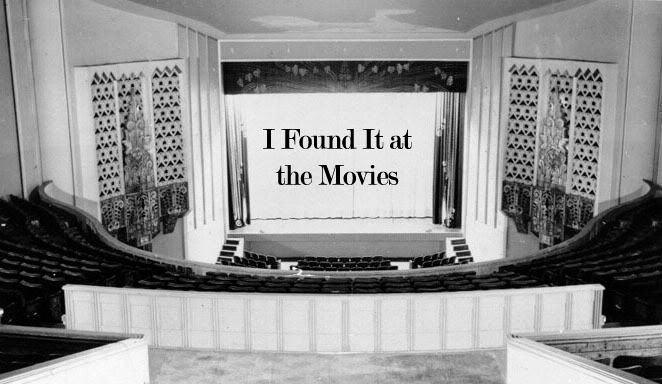
Now having read Richard Corliss’s piece on the state of film critics’ awards ceremonies twice over, I am even more baffled than the first time I parsed through the thing. Corliss, one of TIME Magazine’s two film critics and a former editor for Film Comment, laments the fact that time and again, film critics associations declare very obscure, very little-seen films as the very best of the year. Case in point: as of today, the film critics associations of New York, Boston, Los Angeles, Washington DC, and the National Board of Review have all declared either the Coen brothers’ No Country for Old Men or Paul Thomas Anderson’s There Will Be Blood to be the best film of the year. (The New York Online Film Critics split their vote between Blood and Julian Schnabel’s The Diving Bell and the Butterfly, but more on that film later.) No Country has only grossed $28 million in 5 weeks of release, and There Will Be Blood hasn’t even opened yet. Ben Affleck’s Gone Baby Gone and Sarah Polley’s Away from Her have cornered the acting awards (for Amy Ryan and Julie Christie, respectively), and Daniel Day-Lewis has cleaned up for his turn in Blood. Neither Affleck or Polley’s films have made too much bank, either. Corliss laments that critical and popular success of 2007–films like Knocked Up, Superbad, and Ratatouille–have gone virtually unmentioned in critics’ awards ceremonies. Late-year coming-of-age comedies like Juno and animated films like Persepolis are getting most of the attention instead, and will most likely not be box-office Goliaths. Ditto the Best Foreign Film giants, Diving Bell and the German espionage thriller, The Lives of Others. The most important barometer for giving out awards, according to Corliss, is popular taste.
In case you missed the dripping scorn with which the last sentence was imbued, don’t worry, it was there. Corliss is a fine critic; when he was editor of Film Comment in the 1970s, he helped shape the discourse of film history and aesthetics as we now understand it. Paul Schrader’s landmark piece on film noir and Donald Richie’s revelatory overview of Yasujiro Ozu’s career were encased in the pages of that magazine under Corliss’s leadership. But now, as the mouthpiece for film criticism in 2007 for much of the American public, he is lost in the morass of a rather typical schizophrenia for men and women in his profession. Critics often lament the fact that the movies they love so dearly go unseen. Many critics take the position that this is their own fault, however, that the movies which should be recognized are the ones people actually see. Indeed, Corliss takes this position, at least mostly, in his piece: “Gee, you're wondering, did The Diving Bell and the Butterfly, the French story of a man totally immobilized by a stroke, beat out the German spy drama The Lives of Others? (Three out of five critics groups say yes.) If you're getting restless, movie lovers, too bad. You'll be hearing the same obscure names at the Golden Globes and on Oscar night.” Later, he observes, “[i]n the old Golden Age days, most contenders for the top Oscars were popular movies that had a little art. Now they're art films that have a little, very little, popularity.” If Corliss had his way, it seems, Ratatouille would win Best Picture, beating out Knocked Up and Enchanted.
Except there’s a wrinkle in the fabric: Corliss just recently published his list for the 10 best movies of the year, and there’s only one bona fide hit among them: Beowulf. (And that is certainly not a film which has reached popular and critical consensus.) In fact, No Country for Old Men was #1, and whose win at the New York Film Critics Circle Corliss certainly helped bring about. #3 was a movie that only played in major metropolitan areas and grossed next to nothing, and #s 4, 5 and 6 haven’t even been released yet, another ailment Corliss diagnoses in the critics’ awards distribution. (“Maybe the critical establishment has A.D.D.”) Corliss even openly disses his #6 choice, Persepolis, for consistently beating out Ratatouille, The Simpsons Movie, Bee Movie, and Beowulf in the animated film category. (“An art-house film beat out movies that have already grossed nearly $1.5 billion dollars (or about 47 euros) worldwide.”) This all seems more than a little bit contradictory, non?
Of course, Corliss defuses the bomb a tad, remarking that critics “obviously...should pick their favorites.” But then he says that this is just critics’ way of “contribut[ing] to the art-industrial complex,” that these critics awards are the steam needed to hurtle films to Oscar nominations. Which is certainly a no-no, since Oscars should be reserved for the high-grossing critical faves.
So which is it? Critics awards are bad for not recognizing popular taste and for steamrolling certain films to Oscar glory. But critics awards are good because they recognize the films you love. Can we have the cake and eat it too? Let’s not forget that Corliss completely ignores the economic fabric which causes films like No Country or Diving Bell to never eclipse $50 million (the vagaries of specialized distribution, multiplex exhibition strategies, etc). And let’s also not forget that a large collection of films which many critics love very dearly are legitimate victims to the art-industrial complex and never make it out of the art-house ghetto. (After all, No Country and Diving Bell are both Miramax products, a studio with a substantial cash flow, whereas my 3 faves of the year, I’m Not There, Colossal Youth, and Syndromes and a Century, have grossed roughly zilch among the three of them.) Corliss, in all of his incarnations, also doesn’t seem to care a whit for any films not made in the English language, barring two exceptions whose high profiles and mainstream aesthetic agendas seem to prove the rule.
At the end of the day, a critic’s responsibility is to him- or herself. When it comes to awards, they must vote for the film they believe deserves it. And isn’t it the essential job of a critic to make the public aware of the films that they love in order for the public to go see them? And did every single ticket-buying customer of Knocked Up actually like the film? Isn’t Corliss playing into the hands of the art-industrial complex by placing a film’s value on its box office draw? C’mon, he’s gotta be smarter than that.
Corliss is being quite pandering and condescending to his audience. By not wishing to look elitist and snobby, he overcorrects and sells himself out in order to seem populist. Truth is, all awards tend to be rather limited in their scope, and do lay down a red carpet toward Oscar night. But what’re you gonna do but try and be true to you? Maybe I’m a little more fiery this year because I like No Country so much, and am quivering in anticipation for There Will Be Blood. (By contrast, I didn’t much care for Brokeback Mountain, Crash, Million Dollar Baby, or Sideways, to name a few awards-mongers of recent years.) But he really should know by now that he’s never going to be in tune with the populace Hollywood likes to create if he keeps liking the things that he does.
In case you’re keeping score, here’s Corliss’s Top 10:
1. No Country for Old Men
2. The Lives of Others
3. Killer of Sheep
4. Atonement
5. Sweeney Todd: The Demon Barber of Fleet Street
6. Persepolis
7. No End in Sight
8. In the Valley of Elah
9. Waitress
10. Beowulf


4 comments:
Didn't The Lives of Others win best foreign film for '06?
It did indeed, on a technicality. It wasn't officially released in the U.S. until February 2007.
Very nice post. Well argued. Corliss sounds like he's lost a screw.
Yeah, the guy's gone completely off the deep end. Check out http://blogs.indiewire.com/reverseshot for a potentially racist subtext to his top 10.
p.s. Might I inquire who you might be, John?
Post a Comment